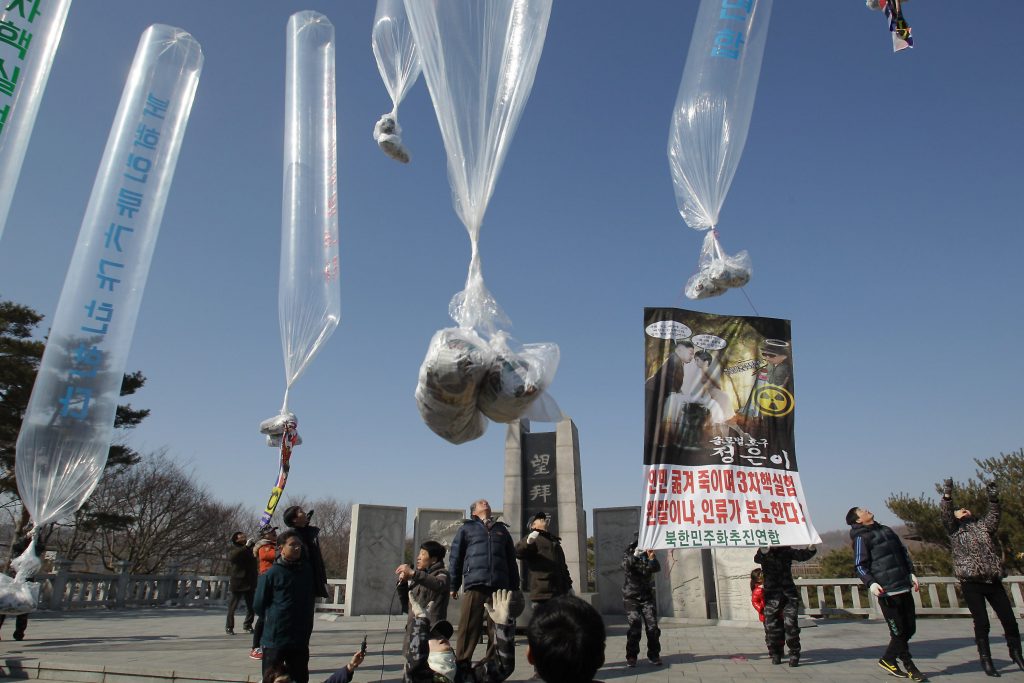- North Korea has blamed "alien things" near the South Korean border for its first Covid outbreak.
- Residents have been warned to "vigilantly deal with" these things coming by wind and balloons.
- For decades, defectors and activists have sent balloons containing leaflets into the hermit nation.
North Korea has blamed "alien things" near the South Korean border for its first Covid outbreak, claiming they most likely came by balloons or the wind.
On Friday, its official Korean Central News Agency (KCNA) reported that an 18-year-old soldier surnamed Kim and a five-year-old kindergartener surnamed Wi became the country's first residents to test positive for COVID-19 after they came into contact with "alien things in a hill" in Ipho-ri in early April.
Ipho-ri is located on the east coast near the border with South Korea.
"The investigation results showed that several persons coming from the area of Ipho-ri in Kumgang County of Kangwon Province to the capital city in mid-April were in fever and a sharp increase of fever cases was witnessed among their contacts," KCNA reported.
Residents have been warned to "vigilantly deal with alien things coming by wind and other climate phenomena and balloons in the areas along the demarcation line and borders," it added. Any sightings of such "alien things" must also be reported, the outlet continued.
For decades, North Korean defectors and South Korean activists have launched hydrogen or helium balloons — carrying items such as humanitarian aid, entertainment, and informational leaflets – across the strictly-controlled border into the reclusive nation. In the past, balloons have contained leaflets denouncing North Korean leader Kim Jong Un, per The New York Times.
More than two years into the worldwide pandemic, North Korea only reported its first-ever Covid case on May 12, which quickly blew up into an "explosive" outbreak of "fever" a day later.
As of Thursday, North Korea recorded more than 4.7 million cases of "fever," but the vast majority of patients have recovered, KCNA reported. According to the BBC, Pyongyang does not refer to the "fever" outbreak as COVID-19, as poor testing capabilities have hindered its ability to diagnose cases.
